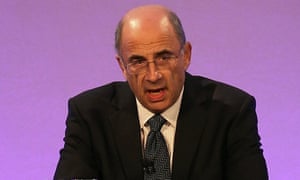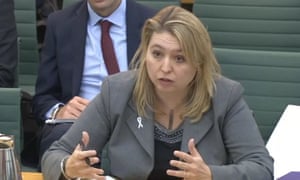
Ready, steady, woe! Remember Lord Justice Leveson’s overarching theme in that hallowed press regulation report of his? “A new system must be effective, and one of the key criteria of effectiveness is that it should include all major publishers of news (if not all publishers of newspapers and magazines).” He wanted “a single regulatory body that could establish a single set of standards on which the public can rely”. Well, good luck with that …
Before Leveson, there was the now derided Press Complaints Commission (PCC) – with Richard Desmond’s Express group and Private Eye sitting outside the tent.
After Leveson, we have the new Independent Press Standards Organisation (Ipso), with 1,500 newspapers and magazines, plus 1,100 attendant websites, in its portfolio. We have the Guardian, Observer, i, Evening Standard and FT outside, doing their own regulatory thing, with in-house codes attached.
And now we have Impress, sanctified as pure and compliant by the government-funded Press Recognition Panel last week. Impress has a few dozen hyperlocal papers and blogs on its roster – but nothing you could remotely describe as a “major publisher”.
Whatever happened to that booming mantra about “a new system that must include everyone”? It’s toast, alas. Burned toast. But is it enough to echo Brian Leveson’s verdict that failure to come together must be “a sad indictment of the inability of the press to put commercial interest to one side”? The passing years have made that seem a tad naive.
Those who formed Ipso (apart from funding its operation) did so knowing that HMG seemed committed to activating section 40 of the Crime and Courts Act 2013 so that once a “recognised regulator” took to the stage, as Impress has now done, publishers faced paying the crippling costs of libel actions even if they won the case. And they didn’t trust Westminster or Whitehall involvement in the final royal charter version of life with Brian, one cooked up with Hacked Off and takeaway pizzas over a long night in the Cabinet Office.
Those who stand outside Ipso – the Observer and the rest – have their own reasons, but remember the verdict of the Guardian’s last editor: this whole royal charter package is a “medieval nonsense”. Alan Rusbridger, after the baying pursuit of Edward Snowden and his revelations, feared that the “safeguards” against charter change – a vote of two-thirds of the Commons – offered no safety at all. (See this month how riptides of public opinion drive Commons’ voting, Sir Shifty.) And, like the FT, Rusbridger knew that the regulation of web coverage spanning the globe from a small Impress office in London Victoria was nonsense squared. The world, the real world, was moving on. Fast.
There are indictments to this story at every turn. Some of them can be delivered to selected newspaper front doors in the wake of the phone-hacking and Mazher Mahmood trials. Nobody’s arguing with that, or with the millions in legal retribution that follow. But don’t let other key players off scot free. The police had, and still have, a lot to answer for – especially after their single Operation Elveden “success” went Bun-shaped last week.
But frailty is there on all sides. Brian Leveson didn’t understand the first thing about the internet; and that shows. The politicians didn’t embrace his words as holy writ, either. He wanted Ofcom to do the recognition panel act, putting it in charge of all broadcasting, including the BBC; all telecommunications, including sawing Vodafone off at the knees; and all newspapers and their news websites.
That was a botch, one compounded as No 10 and parliament got involved in cross-party stitch-ups. Hacked Off, blazing vitriolically away, didn’t help one jot. And we need to acknowledge, here, now, where this wandering, rutted track has led us.
David Cameron is history. So is the compromise that Oliver Letwin patched together one long night in 2013. Mr Letwin is a humble backbencher who buys his own pizzas these days. Brian Leveson is busy elsewhere, president of the Queen’s bench division. And the royal charter that occupies most current thought is the one foisted on the BBC in the name of “independent” broadcasting. If anyone had written four years ago that the tainted fruit of this inquiry would be a “recognised regulator” funded almost entirely by Max Mosley, hollow laughs would have turned to guffaws.

And the problem is that it isn’t all over yet. Just the reverse. Karen Bradley, our newish culture secretary in loco Theresa, isn’t minded to activate section 40 just yet. But she might if there’s another outcry over some egregious shock-horror reporting – or, worse, a repeat of the national security revels that dogged Snowden coverage. She, and those who follow her, can choose. Our government, if it so wishes, has a lock-hold on the press, a way of turning free to corralled by fiat.
That’s no happy solution. Nor for an Impress pottering along until Mr Mosley’s beneficence runs dry, its mere existence, in one stalwart’s words, just enough to “keep Ipso honest”. Nor is there anything particularly joyful about the £3m of government money provided to sustain the tiny Press Recognition Panel until patience and prospects run out at the end of next year.
None of this is a victory for one side or the other. Everything about it portends __more stalemate to come. Which ought, at last, to mean a little fresh thinking. Ipso, if you look hard at the detail, has made a pretty good stab at improving voluntary regulation. Set the Ipso and Impress editorial codes side by side and no one can see much difference. Apply those codes to current cases and there’s no obvious gap either. The problem for Ipso isn’t performance but perception, as Sir Joseph Pilling, former permanent secretary for Northern Ireland and chairman of the report on human sexuality for the House of Bishops, wrote the other day in his external review of Ipso’s first two years.
“[It] is an uphill task for Ipso to prove that it deserves to be trusted as independent regulator. Decisions made by those in charge of the PCC led to its demise and a collapse in public trust. This is only compounded by the fact that Ipso is funded, and was established, by the industry. In these circumstances, it is no easy task to gain the public’s trust.”
In short, no matter how stringently a former judge such as Sir Alan Moses and his Ipso team perform their regulatory duties, they’re still there to be sniped at – in principle as well as in practice.
But are such perceptions set in stone? Could there be movement on this central point, the possibility of Ipso collecting its money direct from those it regulates (with an independent finance interlocutor on hand to ensure fair play)? If there is, many objections – including some of those of current outsiders – drop away. Impress could also ask itself searching questions. Are we a help or a hindrance to things we believe in? Have we any real future, apart from lingering while __more Max money is spent? Recognition gives us a little clout, but no decisive power.
It’s a mistake to think of Impress as some jerry-built Trojan horse. Jonathan Heawood, its founder and driver, is a human rights campaigner of note. He didn’t set out to start a front organisation. He doesn’t need and shouldn’t want to spend months and unproductive years playing prime spoiler on the Fleet Street block. There ought to be room for beneficial rapprochement here. Both sides, for instance, are bent on providing an arbitration service. Ipso is exploring possibilities with a professional arbitrator. Room for co-operation and comparison.
Maybe Mosley wouldn’t want a peace treaty. Maybe – nay, certainly – Hacked Off will keep banging away as though it were 2007 all over again. But hyperbole and hysteria from the trenches are wearing out their welcome. And MPs, too, have a moment for pause. They can plough forward with their own riffs on Leveson, as the House of Lords did recently when it overturned government whips and passed an amendment to the investigatory powers bill, proposed by Baroness Hollins, that allows people suing a newspaper over phone-hacking to claim their costs of their action from the publisher in question: section 40’s little brother.
More Murdoch bashing! Jolly good show! But the effect of the amendment means that a claimant could come to any publisher and state that they believe the only way that it could have sourced a story was by hacking their phone. The publisher – any publisher, no Murdoch limitation here – would have to make a nightmare decision: do you reveal the source of your story, or make clear that you have a source but will not reveal them at all costs?
The Hollins amendment – if upheld when the Common votes on it in a few days – means that claimants will be able to use the clause to force journalists to prove a negative, and then pay the costs of the claimant for having done so. Which, inevitably, means less protection for sources, Observer or Sun (whatever the Impress code says about protecting them).
It’s the old game of unintended consequences. It also shows the peril of piecemeal tinkering on freedom’s turf. And the alternative for our legislators seems ever clearer, and more necessary. They could stand back and mothball section 40 while negotiating space develops. They could – very sensibly – encourage a dramatically revamped regulatory regime that fits the internet age. They could also seek a fresh, more collegiate start.
For let’s be clear where Impress recognition left us last week. Stuck with stereotypes and delusions. Believing that a “free press” can be inflicted by political blackmail, or law. Arguing that the great and good regulatory classes – legal eagles, NHS administrators, media academics, charity directors and professional regulators of anything going – are somehow the voice of Britain in this age of non-metropolitan disenchantment. All of them and all of us up a blind alley, promising only more of the same.
It doesn’t make sense any longer. Blanket bitterness stuck in a time warp. Most editors, like most politicians with a soupçon of perspective, would know what to say about such impasses. Time to dismantle the barricades. Time to move on.